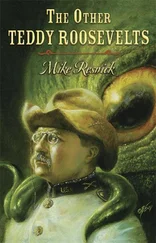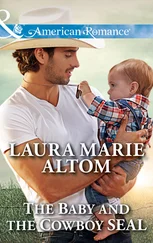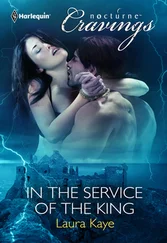I said to him, “I guess I’ll send a search party after you when I’m ready to leave.”
Max responded with a distracted nod, still gazing after Lily Yee with that melancholy expression as she turned to lead the way back to another section of her labyrinthine store.
14

Loyalty
After Max and Lily parted company with us, John asked Ted, “Was that Mary on the phone? How is she?”
“They don’t think they’ll have to operate again,” said Ted. “But she’s looking at a long recuperation.”
“Just how bad was the injury?” I asked.
“Bad,” said John. “She slipped going down the stairs of her apartment building. Broke the leg in two places.”
I winced. “What rotten luck.”
“You said it.” Ted nodded. “You never met anyone with worse luck than Mary.”
“It was one thing after another,” said John—which I remembered someone saying at lunch today, too. “First, she got mowed down by a runaway food cart on Broadway.”
“What?” I blurted.
“Such a weird freak accident. Nothing broken, just superficial injuries,” Ted said to me. “But she was so bruised and banged up, I postponed the start of the film for a week. She couldn’t work on-camera in that condition.”
“Then a few days after we started shooting,” said John, “she got this virulent chronic rash. Very uncomfortable. I was afraid the makeup had caused it, even though the rest of the cast was fine.”
“I still don’t see how it could be the makeup, John. The only place you were using it was on her face, which was just about the only place Mary didn’t have that rash.”
“After that, she went into anaphylactic shock one day.”
“Oh, my God,” I said. “That could have killed her.”
John asked Ted, “Did they ever figure out what caused it?”
“I don’t know,” said Ted. “I don’t think I’ve asked about it since she broke her leg.”
“Man, it really was one thing after another, wasn’t it?” I said in amazement. “That poor woman.”
“It was like she was cursed,” Ted said.
“Cursed?” I repeated with sudden dread.
“But the surgery on her leg went well and it sounds like she’ll be all right,” he added. “Well, as long as nothing else happens to her for a while.”
I took a breath to steady myself. When Ted said curse, he was just using a figure of speech—a very apt one, given Mary’s run of bad luck. Max had said the death curse would work quickly and couldn’t be mitigated; and, obviously, Mary wasn’t dead. She also didn’t have anything to do with Joe Ning. Or with Benny Yee, apart from being in his nephew’s film.
“Are you all right?” John asked me. “You look a little . . . I don’t know.”
“Oh, I’m fine,” I assured him. “Mary’s story is just really upsetting, you know?”
“In that case,” said Ted, a big grin starting to spread across his face, “let me take your mind off it with some good news! My new backer has stepped up to the plate. We can keep filming after Uncle Benny’s investment runs out!”
“Hey! That’s great!” In the spirit of the moment, I gave Ted a big hug. “I’m so glad.”
“Great news, Ted. Congratulations!” John shook his hand, patted his back, then turned to give me a hug.
I was so pleased I’d be working for a while longer, and so grateful to John for introducing me to Ted, I squeezed hard.
When we let go, he murmured, “You smell nice.”
I laughed. “I think that’s crab in spicy sauce. Or maybe Nelli.”
“It’s definitely not Nelli,” he said with a smile. “I remember what she smells like.”
“Who’s Nelli?” Ted asked.
“Never mind,” said John. “So who’s your new backer?”
“I can’t really say.” Ted made a vague gesture. “He wants to be a silent partner. For the time being, anyhow. At least until we get more details worked out.”
“But he’s investing enough money for us to finish the film?” I prodded.
“That’s one of the details we have to work out,” said Ted. “Exactly how much money he’s putting in. He wants to see a budget and, well, I don’t really have one. Well, not like a detailed, formal one. Most of it is in my head.”
Somehow this didn’t surprise me. And since there seemed to be a hole in Ted’s head . . .
“Still, it’s good news,” I said, determined to look on the bright side. For a while longer, I could keep eating and continue saving toward next month’s rent, and I was acting instead of waiting tables or office temping. So it was all good.
“I have good news, too,” said John. “Since you’re not sure how much of the, um, budget your new backer will cover, I think I’ve got a plan for raising additional money.”
“Really?” Ted was suddenly alert. (Indie filmmakers are always alert when someone says they might be able to raise money.)
“Since I’m pretty much carrying my lab partner through this term, he owes me a big favor,” said John. “The upshot is that his girlfriend, who does something in NYU’s film school, says she can help us host an investor event. She’s done this before, and it worked, so she knows the ropes.”
John explained that Ted would need to prepare a short sample reel from the movie—a full scene or two, plus a short montage of some other scenes and shots. Then he’d rent a hall and invite a few dozen venture capitalists to come to view the reel. Among them, there should be a few people who’d be willing to invest in the movie. John’s NYU acquaintance would help us stage the whole evening for maximum effect and best results.
“Oh, I know what to use! I’ve got some great footage of a speech that Jianyu makes to Brian about Confucian values. Archie delivers the whole monologue while working with his nunchaku.” Ted demonstrated by waving an imaginary version of the flailing weapon all around his head. “It’s really cool.”
“Archie doing his moves might work better in the montage,” said John. “He does look impressive doing his thing.”
I shrewdly sensed that John might not be a big fan of Jianyu’s tedious speeches.
“Hmm.” Ted thought it over.
“Anyhow, I think you should definitely use one of Esther’s scenes. I know it’s mostly a Chinese story, but I think it’ll get investors interested when they see how good she is in the movie,” John said. “And you’d need to prepare some comments about the film, Ted. A short introduction, talking about the themes and the story, its meaning and message, why it will appeal to audiences. You know the sort of thing.”
Ted nodded and recited, “ ABC is a coming-of-age story about a first-generation American-born Chinese guy torn between his attraction to Western culture and its emphasis on the individual, as represented by Alicia, and traditional Chinese culture, with its emphasis on family, duty, and the importance of face, as represented by Mei.”
“Well, you’ve got time to work on the speech,” John said tactfully. “You’ll also need to prepare a package to hand out. It should include a written summary of the film—”
“A treatment,” I supplied.
“Oh, right, that was the word.” John nodded. “And you’ll have to provide the attendees with a copy of the budget—so, um, it’s just as well you’ll be working on that for your silent backer.”
“Oh, right . . . A budget . . .”
“After we show the film clip, there could be a question-and-answer session with the actors. The investors would probably like to see the cast.”
Читать дальше












